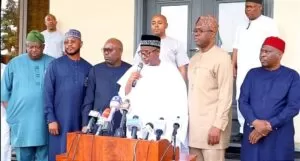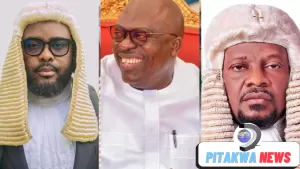17 Political Parties Participating in Edo Governorship Elections

The Edo State governorship election, scheduled for September 21, 2024, features a total of 17 political parties, each fielding their candidates with distinctive backgrounds and political agendas, aiming to succeed the incumbent, Godwin Obaseki. Here’s an overview based on the information available:
- Action Alliance (AA) – Uwaifo Osaro is the candidate, aiming to leverage his political experience for the governorship position.
- All Progressives Grand Alliance (APGA) – Osifo Isiah represents APGA, with a focus that might appeal to voters looking for an alternative to the major parties.
- Accord Party (AP) – Iyere Kennedy is the candidate, bringing forward a platform that might emphasize unity or a particular policy focus.
- All Progressives Congress (APC) – Although specific details about the APC candidate aren’t provided here, the APC traditionally enjoys strong support in various regions of Nigeria, including Edo State.
- Boot Party (BP) – Osirame Edeipo is contesting, possibly with a platform that stands out by focusing on unique governance or economic policies.
- Labour Party (LP) – Olumide Akpata is the candidate, with endorsements from notable figures like Peter Obi, suggesting a campaign centered around labour rights, economic equity, or governance reform.
- New Nigeria Peoples Party (NNPP) – Azena Azemhe Friday, whose background includes religious leadership, might campaign on moral governance or community service.
- Peoples Democratic Party (PDP) – Ighodalo Asuerinme represents PDP, with a campaign likely focusing on continuing development projects or introducing new governance models.
- Social Democratic Party (SDP) – Aner Abdullai Aliu, focusing potentially on social democracy principles, appeals to those looking for alternatives to the two dominant parties, APC and PDP.
The political landscape in Edo State for this election is notably diverse, with each party’s candidate bringing their unique selling points to the electorate. The presence of multiple parties not only reflects the democratic vibrancy of the state but also indicates various voter preferences ranging from economic policies, governance style, to social issues.
This election’s outcome could hinge on several factors including voter turnout, the effectiveness of party campaigns, and the ability of candidates to connect with the electorate on issues like development, employment, and governance transparency. The involvement of 17 parties also suggests a fragmented vote which might lead to interesting alliances or strategies post-elections, depending on the results.







